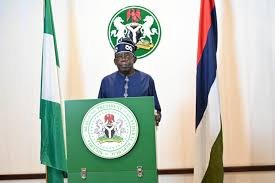In his New Year message for 2025, President Bola Tinubu announced the unveiling of the National Values Charter, which has already received approval from the Federal Executive Council.
The Charter is set to be launched in the first quarter of 2025 and aims to foster patriotism, unity, and trust between the government and citizens.
The President described the initiative as a foundational step toward building a stronger, more cohesive Nigeria.
If fully implemented, the National Values Charter promises several benefits. One of its main goals is to instil a sense of national pride and responsibility among citizens.
By emphasising shared values, such as mutual respect, commitment to national development, and unconditional love for the country, the initiative could unite Nigeria’s diverse population.
It also aims to improve trust between the government and the people, which is crucial for fostering effective governance and cooperation in addressing national issues.
The anticipated national orientation campaign would also encourage citizens to take an active role in promoting positive change, potentially reducing societal divisions and boosting national solidarity.
However, there are potential challenges and drawbacks to the Charter’s implementation.
A key concern is how the government plans to define and promote these “shared common values” across Nigeria’s vast and diverse cultural landscape.
The risk of the Charter being perceived as an imposition of one group’s values over others could lead to resistance.
Furthermore, the success of the Charter will depend heavily on how effectively it is communicated and embraced at all levels of society. Without genuine grassroots engagement, the initiative may struggle to resonate with the population.
Overall, while the National Values Charter has the potential to positively reshape Nigerian society, its success hinges on inclusive, transparent implementation and the genuine involvement of all Nigerians in its goals.



